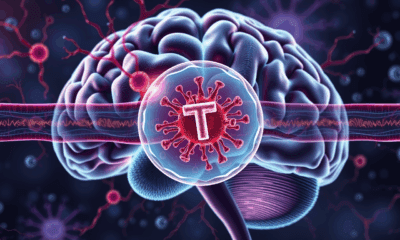While we try to keep things accurate, this content is part of an ongoing experiment and may not always be reliable.
Please double-check important details — we’re not responsible for how the information is used.
Gender Difference
The Unspoken Preference: Uncovering the Hidden Bias in Facial Attractiveness
Shifting cultural perceptions of beauty could drive ‘lip dysmorphia’, so psychologists tested the response of 32 people to altered images of lips to see how they responded. The results were surprising.

Dementia
Unlocking the Secrets of Women’s Alzheimer’s Risk: Omega-3 Deficiency Revealed
Researchers discovered that women with Alzheimer’s show a sharp loss of omega fatty acids, unlike men, pointing to sex-specific differences in the disease. The study suggests omega-rich diets could be key, but clinical trials are needed.
Anger Management
The Hidden Depression Crisis in Early Menopause: Uncovering the Unexpected Risks
Premature menopause isn t just a hormonal issue it s a deeply emotional one for many women. A new study reveals that almost 30% experience depression, and it s not just about hormone loss but also grief, identity, and support systems.
Anxiety
Self-Esteem Soars 131% After Weight-Loss Surgery, Groundbreaking Study Reveals
Self-esteem scores jumped a remarkable 131% within just one year of bariatric surgery, according to a large study presented at ASMBS 2025. Tracking nearly 5,800 patients, researchers found a direct link between weight loss and rising confidence, with the greatest psychological boosts seen in those who lost the most weight. Despite differences in gender, race, or procedure type, patients across the board reported profound improvements in self-worth. The findings shine a spotlight on how addressing weight stigma through surgery can dramatically reshape not just bodies but minds.
-

 Detectors10 months ago
Detectors10 months agoA New Horizon for Vision: How Gold Nanoparticles May Restore People’s Sight
-

 Earth & Climate12 months ago
Earth & Climate12 months agoRetiring Abroad Can Be Lonely Business
-

 Cancer11 months ago
Cancer11 months agoRevolutionizing Quantum Communication: Direct Connections Between Multiple Processors
-

 Albert Einstein12 months ago
Albert Einstein12 months agoHarnessing Water Waves: A Breakthrough in Controlling Floating Objects
-

 Chemistry11 months ago
Chemistry11 months ago“Unveiling Hidden Patterns: A New Twist on Interference Phenomena”
-

 Earth & Climate11 months ago
Earth & Climate11 months agoHousehold Electricity Three Times More Expensive Than Upcoming ‘Eco-Friendly’ Aviation E-Fuels, Study Reveals
-

 Agriculture and Food11 months ago
Agriculture and Food11 months ago“A Sustainable Solution: Researchers Create Hybrid Cheese with 25% Pea Protein”
-

 Diseases and Conditions12 months ago
Diseases and Conditions12 months agoReducing Falls Among Elderly Women with Polypharmacy through Exercise Intervention





























